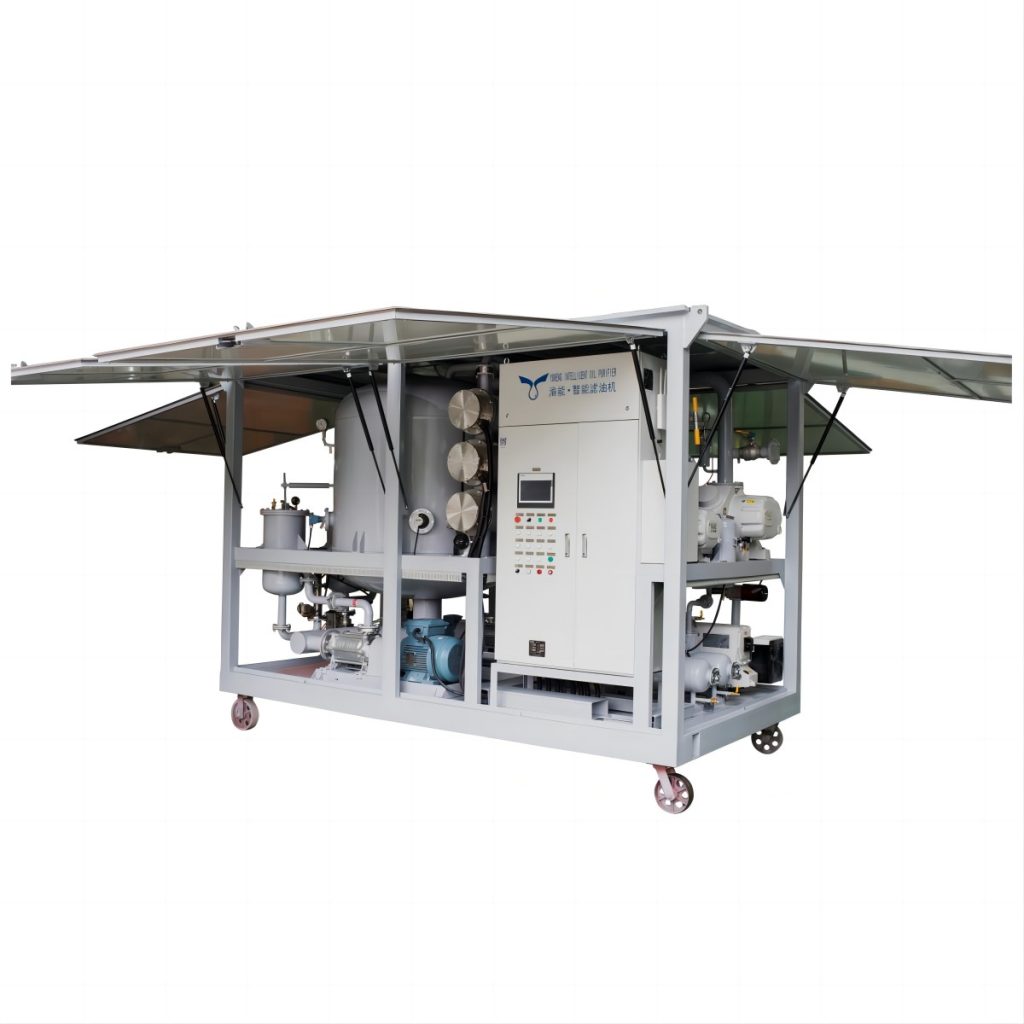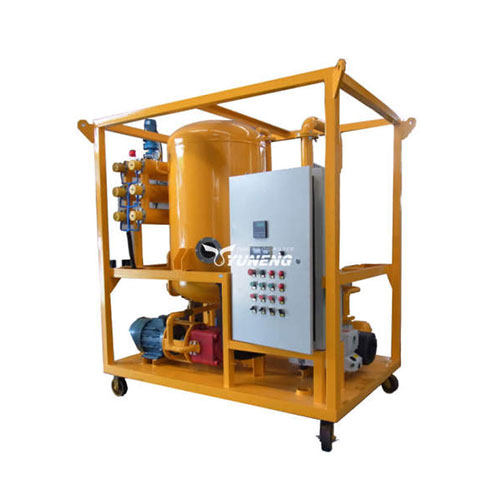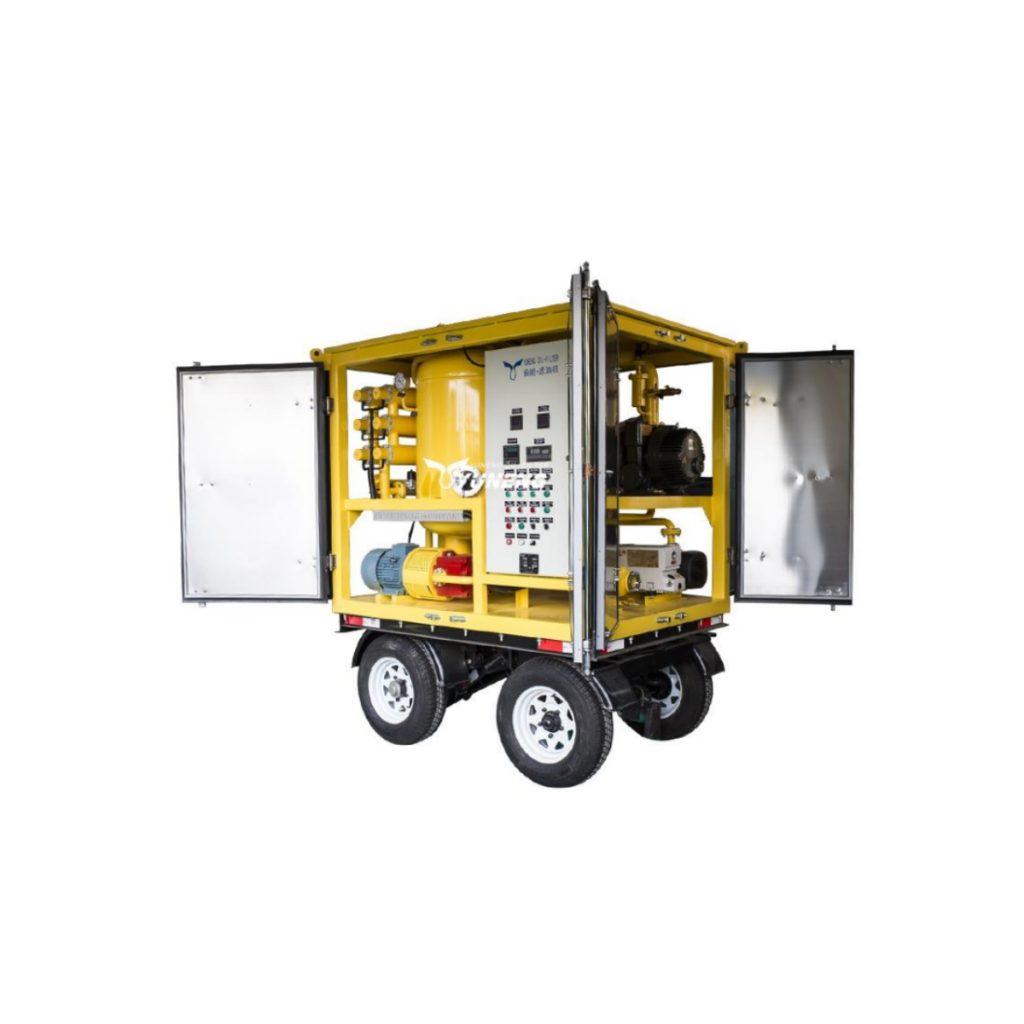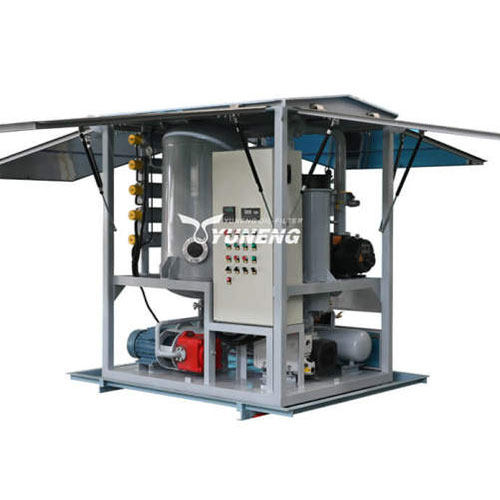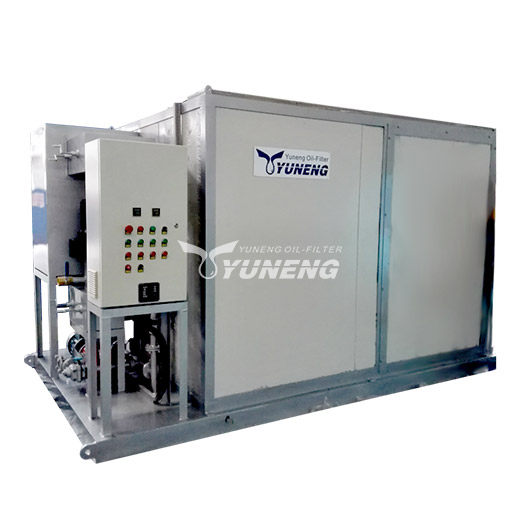Why Every Transformer Needs an Efficient Oil Filtration System?
Table of Contents
Dissolved gases in transformer oil can lead to arcing, corona discharges, and overheating, which significantly reduce the transformer’s electrical efficiency and lifespan. Even minimal water contamination—at levels as low as 30 ppm (parts per million)—can drastically impair the insulating strength of the oil. As energy efficiency standards for power distribution transformers continue to rise, the importance of effective degassing will only grow in the future. Additionally, particle contamination negatively impacts the performance of insulating oil. To address these challenges, a transformer oil filtration machine is essential for purifying used transformer oil and maintaining its cleanliness.
What is a Transformer Oil Filtration System?
A transformer oil filtration system is an advanced piece of equipment that removes impurities from transformer oil, ensuring optimal performance and extending the transformer’s lifespan. These systems utilize cutting-edge technologies to address contamination issues, such as water, dissolved gases, and particulate matter, that compromise the oil’s dielectric strength and cooling capacity.
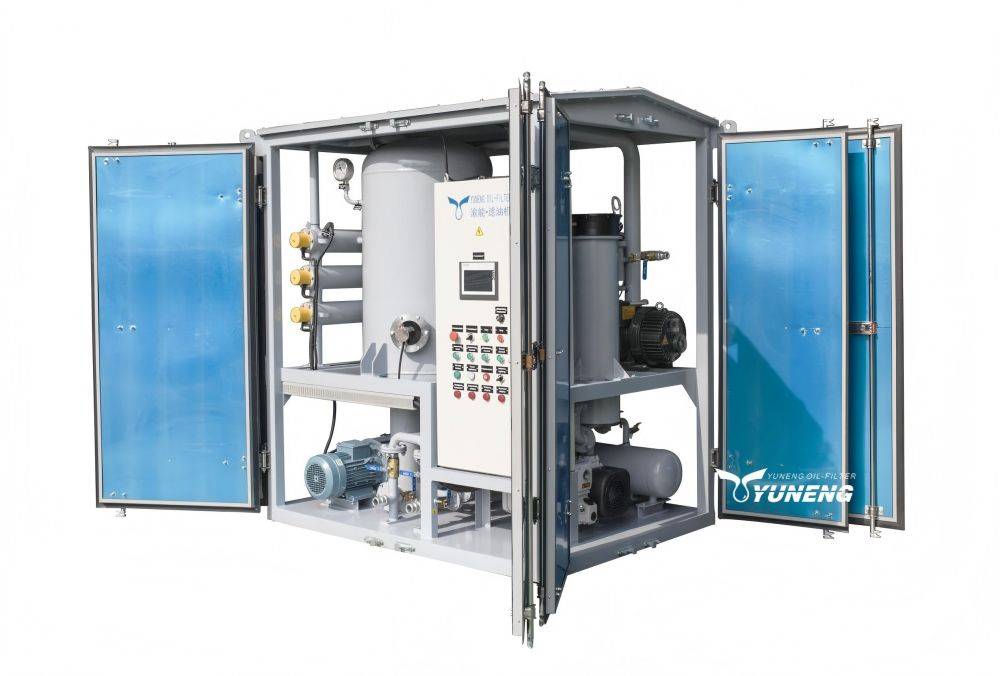
Transformer Oil Filtration Process
The transformer oil filtration process is a systematic and efficient procedure consisting of several essential steps:
- Heating: The oil is preheated to lower its viscosity, facilitating the removal of contaminants.
- Degasification: A vacuum is applied to extract dissolved gases such as hydrogen, methane, and carbon dioxide, which is critical for preserving the oil’s insulating properties.
- Moisture Removal: Both free and dissolved water are eliminated using vacuum dehydration or adsorbent filters. Even small amounts of moisture can severely diminish the oil’s dielectric strength, making this step crucial.
- Filtration: Fine particulate filters capture and remove solid impurities like dust and sludge that accumulate over time, enhancing the oil’s quality.
- Cooling and Recycling: After purification, the oil is cooled and returned to the transformer, ready for reuse.
Regular oil filtration is essential for maintaining transformer efficiency and reliability. Investing in a quality transformer oil filtration system not only protects your equipment but also ensures uninterrupted power supply and cost savings in the long run.
Reasons Transformer Needs an Efficient Oil Filtration System
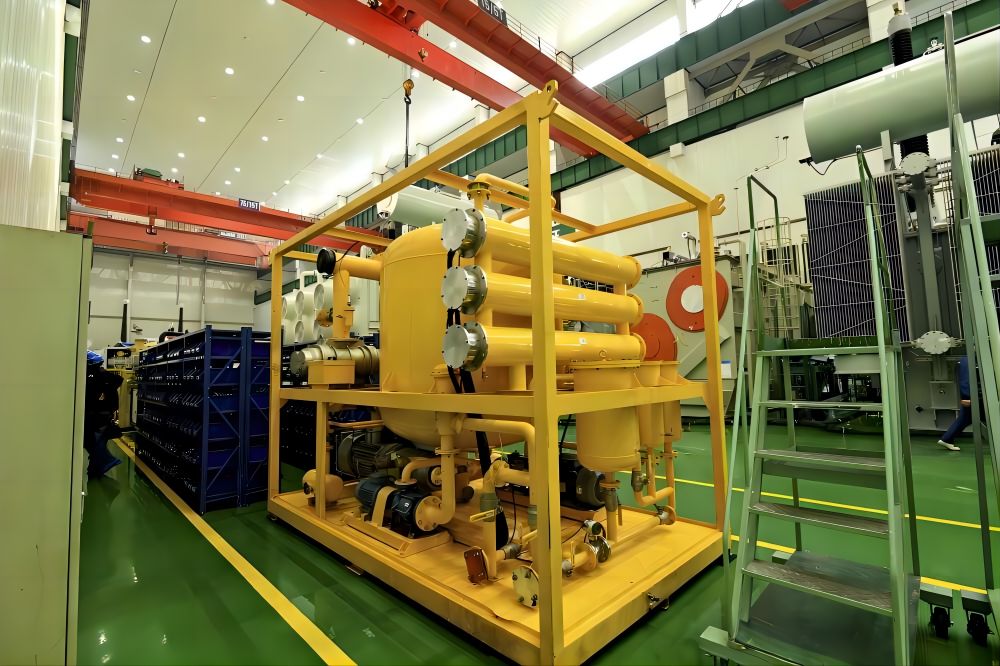
Efficient oil filtration systems are essential for the optimal performance and longevity of transformers. Below are five key reasons why an efficient oil filtration system is indispensable.
Removal of Solid Contaminants
Solid contaminants, including dust, fibers, and particles from deteriorating insulation or other transformer components, can accumulate in transformer oil. These impurities disrupt the oil’s insulating properties, raising the likelihood of dielectric breakdowns. Additionally, they can block cooling pathways, impairing heat dissipation. An effective oil filtration system removes these solid contaminants, helping the oil retain its insulating and cooling efficiency while reducing the risk of electrical failures.
Removal of Dissolved Gases
Electrical discharges, overheating, and natural aging processes produce dissolved gases in transformer oil. Gases such as hydrogen, methane, and ethylene not only degrade the oil’s dielectric properties but also signal potential internal faults. If untreated, these dissolved gases can accelerate oil degradation and lead to transformer malfunctions. Oil filtration systems with degasification processes efficiently remove these gases, restoring the oil’s dielectric strength and enabling the early detection and prevention of potential faults.

Removal of Water
Water is one of the most harmful contaminants in transformer oil. Even trace amounts of moisture can greatly reduce the oil’s dielectric strength, raising the risk of electrical discharges or insulation failure. Water can infiltrate the system through aging seals, condensation, or chemical reactions. Advanced oil filtration systems use vacuum dehydration to remove free, emulsified, and dissolved water, ensuring the oil stays dry and continues to perform its insulating and cooling functions effectively.
Maintaining Optimal Transformer Oil Density
The physical properties of transformer oil, including density and viscosity, are essential to its performance. Contaminants and degradation byproducts can alter these properties, resulting in poor circulation and decreased cooling efficiency. Oil filtration systems help maintain the oil’s optimal density and viscosity, ensuring the transformer operates efficiently, even under fluctuating load and temperature conditions.
Extending Transformer Lifespan
A transformer’s operational lifespan is closely tied to the quality of its insulating oil. Contaminants, moisture, and gases accelerate the deterioration of critical components like windings and insulation. A filtration system that continuously purifies the oil helps prevent premature wear and tear on the transformer’s internal parts. This not only extends the transformer’s life but also lowers maintenance frequency and costs, ultimately saving time and resources in the long run.
Want to Invest In a Transformer Oil Filtration System?
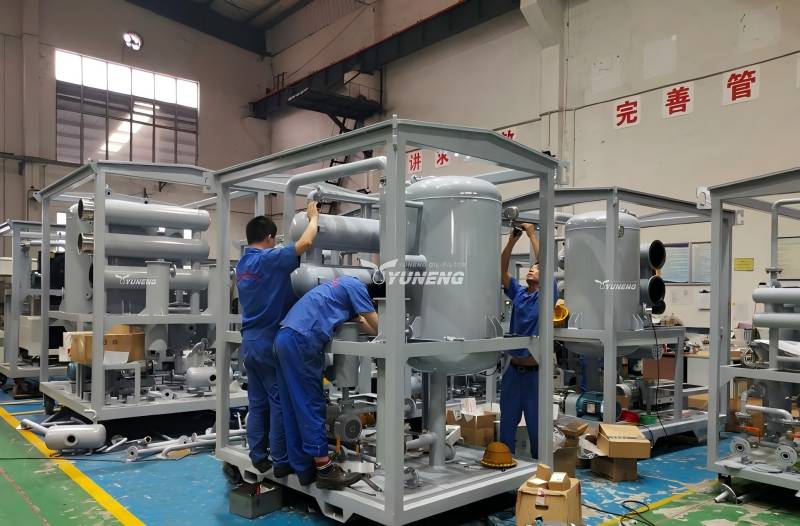
If you’re looking to invest in a high-quality transformer oil filtration system, YUNENG is a leading manufacturer that specializes in innovative oil purification solutions. With over 25 years of expertise, YUNENG offers customized oil filtration systems designed to meet the specific needs of your transformer operations. Their products, including double-stage transformer oil purifiers and online filtration machines, are designed for maximum efficiency and reliability. Certified with ISO quality management and CE standards, YUNENG provides durable, high-performance systems that extend transformer lifespan and enhance performance.
To learn more about YUNENG’s products or to get a tailored solution for your transformer oil filtration needs, visit our website here.

